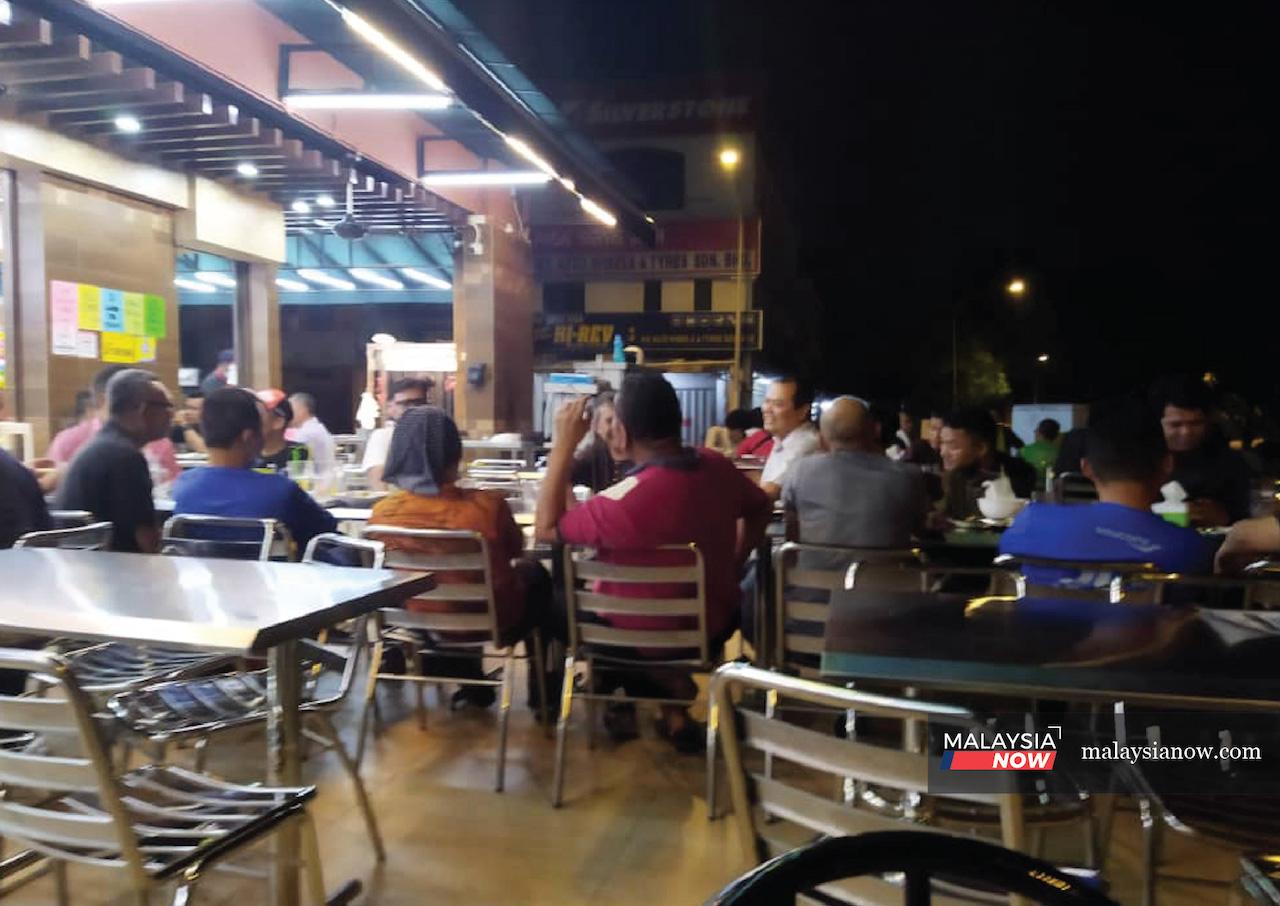Extended opening hours giving ‘lepak’ culture a shot in the arm?
Workers at restaurants that open until the wee hours of the morning acknowledge crowds of customers who do not always adhere to Covid-19 SOPs.
Just In
As the clock ticks towards midnight, the streets of Setiawangsa in Kuala Lumpur fall silent one by one. A few remaining pedestrians hurry home, and lights in buildings are turned down.
At one spot in a commercial area, though, packed with vehicles and people, the noise and hubbub of the day continues.
Careless about the hour, about 50 diners, mostly groups of youth, are enjoying a late night meal at a mamak restaurant.
One group plays a mobile phone game while another sits shrouded in clouds formed by vape and shisha. Their laughter and chatter is punctuated by the clatter of spatulas on woks as waiters rush their orders to the restaurant cooks.
Crowded around tables with mere inches between themselves and the next person, their carefree behaviour appears at odds with the fact that the capital city has been recording daily Covid-19 cases in the hundreds, as the country fights a wave of infections that has kept it around the 3,000 level for days.
A member of staff at one restaurant in the area who asked to be kept anonymous said such crowds have been the norm nearly every night since Ramadan began.
“They come before midnight and ‘lepak’ around,” he said, using the Malay word for loiter. “Sometimes they combine the tables. The numbers decrease at 2am when we close the restaurant.”
Similar scenes could be observed in Wangsa Maju where customers sat in large groups, some comprising more than 10 people, even at 2am. Checks by MalaysiaNow found that none of them observed the minimum safe distance of one metre.
A restaurant worker who also did not want to be named said they try not to disturb their customers despite the obvious SOP violations.
“It’s fasting month, and we do not want to create a sense of unpleasantness for customers,” he said.
Adding that everything can be seen on CCTV, he said the management “definitely knows about this”.
“But we are not told anything regarding this,” he said.
MalaysiaNow’s attempts to reach the owners of these restaurants and their association have been unsuccessful.
Covid-19 infections have been surging across many parts of the country, sparking fears that numbers could reach 4,000, a level last seen in February, during the so-called movement control order (MCO) 2.0.
Mohd Yusof Abdul Rahman, deputy president of the Federation of Malaysian Consumers Associations, said this is the situation in some mamak restaurants which, along with other eateries in states under conditional and recovery MCO, were given the green light on April 12 to remain open until 6am during the month of Ramadan.
“Loitoring around is indeed occurring at some restaurants during Ramadan,” he said.
“Patrons who loiter take more than one hour sitting at the restaurant, not to eat but to chat with friends.”
He suggested that restaurant managements use their discretion to politely remind customers to maintain physical distancing, or put up posters informing customers of a time limit for remaining on premises.
He said the question of whether to continue allowing dine-in customers is a dilemma for the government.
“We had the no dine-in order during the previous MCO,” he said. “But restaurants would surely make a fuss if this is imposed now, as they would lose their customers.”
Yusof said it is also the responsibility of the public to adhere to SOPs and not to get upset if they are reminded of this by restaurant workers.
Dr M Subramaniam, president of the Malaysian Medical Association, urged enforcement officers to conduct regular spot checks to ensure that restaurants are complying with SOPs.
“The one-metre physical distancing rule must be strictly observed as people can be exposed to the risk of infection when their face masks are removed when dining.
“There should also be limited hours for dining in as there can be a lack of enforcement at restaurants at late hours,” he said in a statement to MalaysiaNow.
He said restaurants could also promote takeaway meals in order to help lower the risk of Covid-19 infection by offering lower prices than for regular dine-in meals.
“People should be encouraged to take away, especially now when daily cases of Covid-19 are at an alarming level,” he said.
Subscribe to our newsletter
To be updated with all the latest news and analyses daily.
